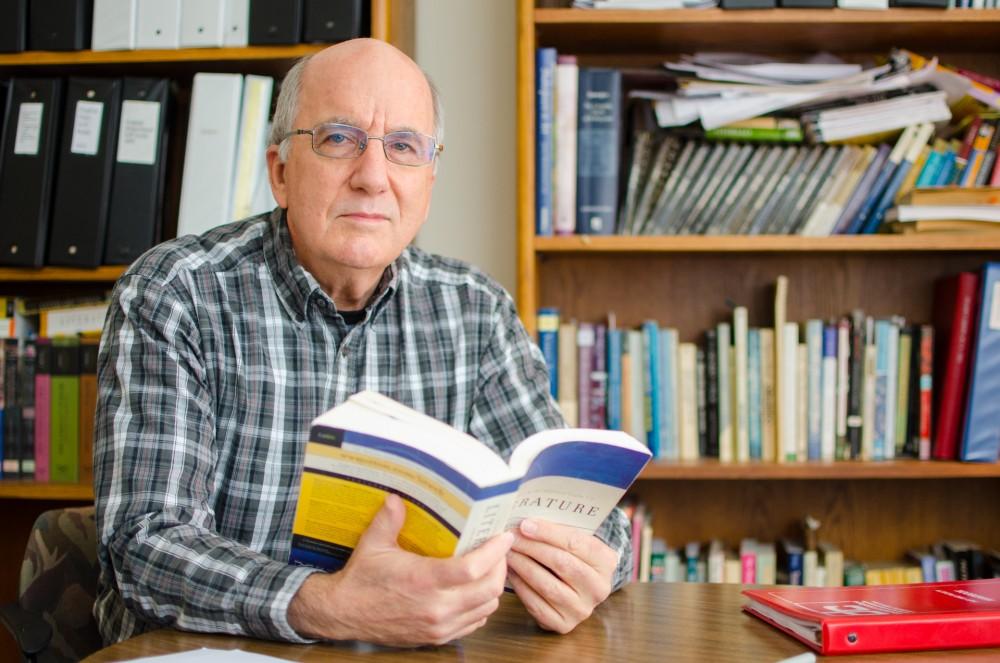Bill Osborn spent years combining realities, writing ‘Seven Tales and Seven Stories’

GVL/Bo Anderson Bill Osborn
Feb 20, 2013
Close your eyes and think of one idea. Let the pen glide across the lined paper. Let your mind unravel and just write. The story could be a personal narrative or a magical tale, but the key to writing award-winning fiction like Bill Osborn comes from both of these types of writing.
A world between real life and the imagination is how Osborn, an author and Grand Valley State University’s English department chair, describes fiction. And with that magical mixture, he wrote “Seven Tales and Seven Stories,” which recently earned him his latest award, the 2013 Unboxed Books Prize in Fiction.
He got the message while sitting in a Washington airport.
“I was in the Seattle airport and it was midnight…and there was a message on my phone which said Unboxed Books wanted to talk,” Osborn said. “And so even the reception of the news, which I didn’t receive official until I got back to Grand Rapids, felt dislocated – in a word strange.”
Osborn was surprised by the award and “felt almost astonished.”
“Now it is two weeks later, I feel struck by luck,” Osborn said. “But I also see this recognition, sort of in concert with the recognition of other members of the faculty have received, all across the university.”
Completing the 14 stories in “Seven Tales and Seven Stories” took a lot of work, but Osborn enjoyed it. It took him years before submitting the book to Unboxed Books. He would spend hours each day writing, editing and revising.
Each story draws from elements of his life mixed with an imaginative world.
“As ‘Seven Tales and Seven Stories’ suggests a distinction between stories, which show characters in a world that we would recognize as real world,” Osborn said. “Then on the other hand, pieces that call attention (to the) artisan of fiction because they are construction on elements that could be considered unlikely in the real world.”
Although writing fiction can be a lot of work, Osborn encourages young writers to continue.
“I would advise them to try things that they have seen before in other people’s writings,” Osborn said. “Take up ideas that…seem nearly impossible and try to write their way through it.”
His love and interest in fiction drives him forward and keeps him going as a writer, Osborn said.
“One of the things about writing fiction that I like is that it actually lets me enter a different place,” Osborn said. “It feels like being in a different place where I get to make up some of the rules and see what those rules lead to for a character in the story. It’s like having your feet in two different worlds: the real world and the fictive world.”
[email protected]






















